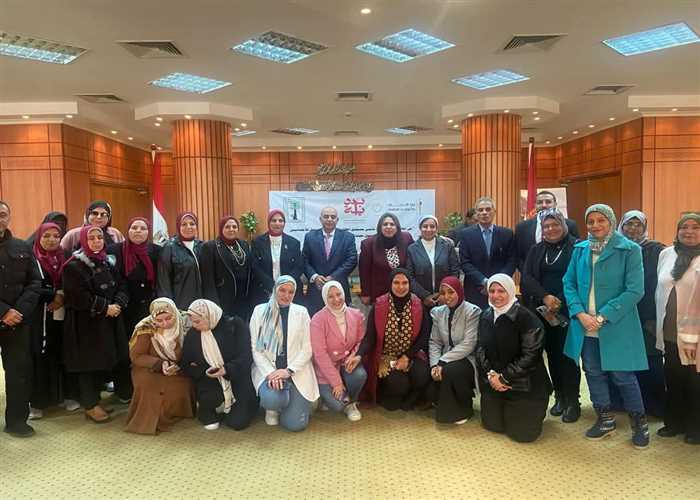
Digital Citizenship cooperates with the National Council for Childhood and Motherhood to organize a workshop to protect children from the dangers of the Internet in Port Said
Project : Digital Citizenship and Online Protection Initiative
In conjunction with the international celebrations of the World Safer Internet Day, and over the course of the seventeenth and eighteenth of February, the Digital Citizenship and Online Protection Initiative, affiliated with the Ministry of Communications and Information Technology, in cooperation with the National Council for Childhood and Motherhood, organized a workshop for social workers in Port Said Governorate on protecting children from the dangers of the Internet.
The workshop was presented by Ms. Asmaa Saber, Director of the Digital Citizenship Initiative at the Ministry of Communications and Information Technology, Ms. Naglaa Desouky, Director of the Child and Digitization Program at the National Council for Motherhood and Childhood, and Dr. Amr Refaat, Professor of Mental Health at the Faculty of Education in Port Said, in the presence of the Assistant Secretary-General of the Governor of Port Said, Brigadier General of Staff Engineer, Amr Mohamed Fikry Abdel Wahab. The workshop activities included a group of interactive activities and presentations on the positives and negatives of the Internet, in which learning, communication and entertainment opportunities were reviewed. On the other hand, the potential risks of exposure to harassment, bullying, electronic blackmail, harmful content and electronic games were explained, as well as the breach of privacy and the importance of protecting the child's personal data, while clarifying the health, psychological, social and economic effects resulting from exposure to these risks. In another interactive session, the concept of the digital footprint and how to form it were discussed, as well as the skills required for the digital citizen, including: critical thinking, the importance of verifying information, and respecting the policies of electronic platforms and social media, which were accompanied by practical and applied activities with the beneficiaries. The mechanisms of protection, support and assistance provided by the state and the competent authorities to victims of Internet risks were also discussed, most notably the Child Helpline, and the most prominent laws and legislations that have been approved to protect children while they are in cyberspace.
During an application session on electronic protection strategies, the role of the family, educational institutions and social workers in protecting children from the dangers of the Internet was reviewed, as well as the role of positive education in contributing to parents confronting the dangers of the Internet and dealing with them properly, by clarifying the relationship between parents and social media and the impact of this on children's use of the Internet.
With an introduction to the most important technical parental control tools, and behaviors of using educational digital platforms, in addition to how to choose electronic games appropriate for different age groups, with a review of the most prominent digital platforms suitable for children that contribute to developing their skills and talents.
The organization of these activities comes within the framework of the cooperation of the Digital Citizenship and Online Protection Initiative with partners to support efforts to build digital skills for children in accordance with the standards of digital citizenship and responsible use of technology, in order to build confidence in the digital environment, and create a digital generation aware of its rights and responsibilities.
Port Said, February 17-18, 2025

 العربية
العربية